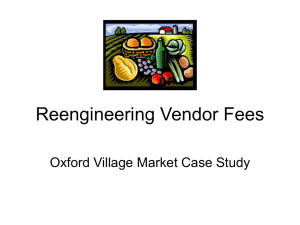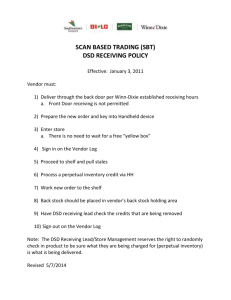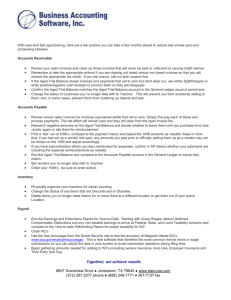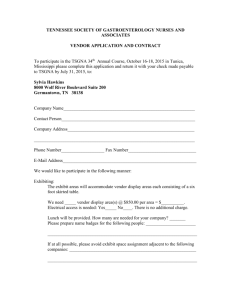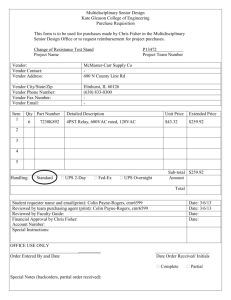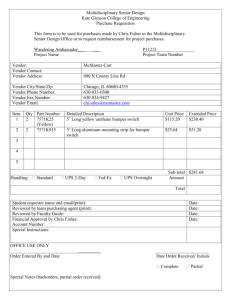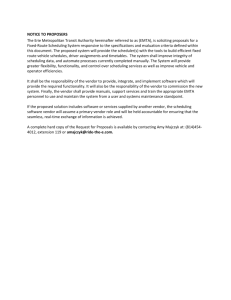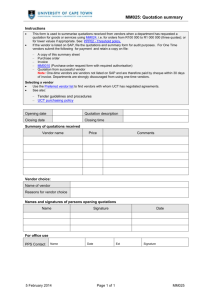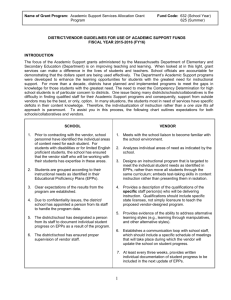ATG 383 - Expenditure Cycle - Matching Threats and Control
advertisement
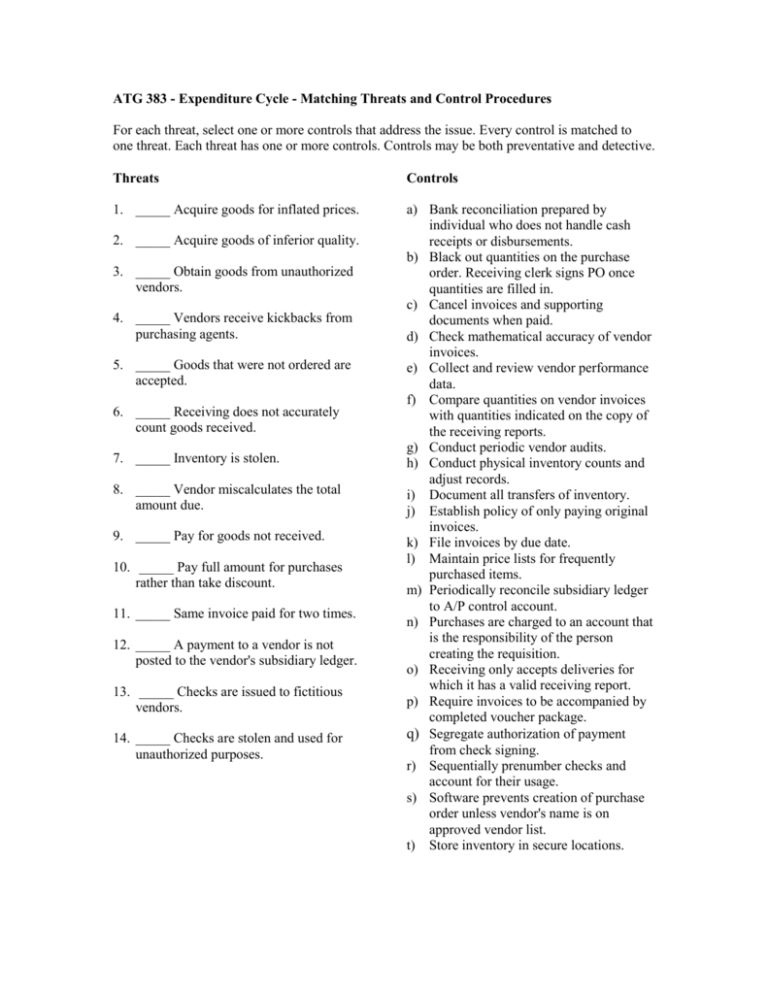
ATG 383 - Expenditure Cycle - Matching Threats and Control Procedures For each threat, select one or more controls that address the issue. Every control is matched to one threat. Each threat has one or more controls. Controls may be both preventative and detective. Threats Controls 1. _____ Acquire goods for inflated prices. a) Bank reconciliation prepared by individual who does not handle cash receipts or disbursements. b) Black out quantities on the purchase order. Receiving clerk signs PO once quantities are filled in. c) Cancel invoices and supporting documents when paid. d) Check mathematical accuracy of vendor invoices. e) Collect and review vendor performance data. f) Compare quantities on vendor invoices with quantities indicated on the copy of the receiving reports. g) Conduct periodic vendor audits. h) Conduct physical inventory counts and adjust records. i) Document all transfers of inventory. j) Establish policy of only paying original invoices. k) File invoices by due date. l) Maintain price lists for frequently purchased items. m) Periodically reconcile subsidiary ledger to A/P control account. n) Purchases are charged to an account that is the responsibility of the person creating the requisition. o) Receiving only accepts deliveries for which it has a valid receiving report. p) Require invoices to be accompanied by completed voucher package. q) Segregate authorization of payment from check signing. r) Sequentially prenumber checks and account for their usage. s) Software prevents creation of purchase order unless vendor's name is on approved vendor list. t) Store inventory in secure locations. 2. _____ Acquire goods of inferior quality. 3. _____ Obtain goods from unauthorized vendors. 4. _____ Vendors receive kickbacks from purchasing agents. 5. _____ Goods that were not ordered are accepted. 6. _____ Receiving does not accurately count goods received. 7. _____ Inventory is stolen. 8. _____ Vendor miscalculates the total amount due. 9. _____ Pay for goods not received. 10. _____ Pay full amount for purchases rather than take discount. 11. _____ Same invoice paid for two times. 12. _____ A payment to a vendor is not posted to the vendor's subsidiary ledger. 13. _____ Checks are issued to fictitious vendors. 14. _____ Checks are stolen and used for unauthorized purposes.
